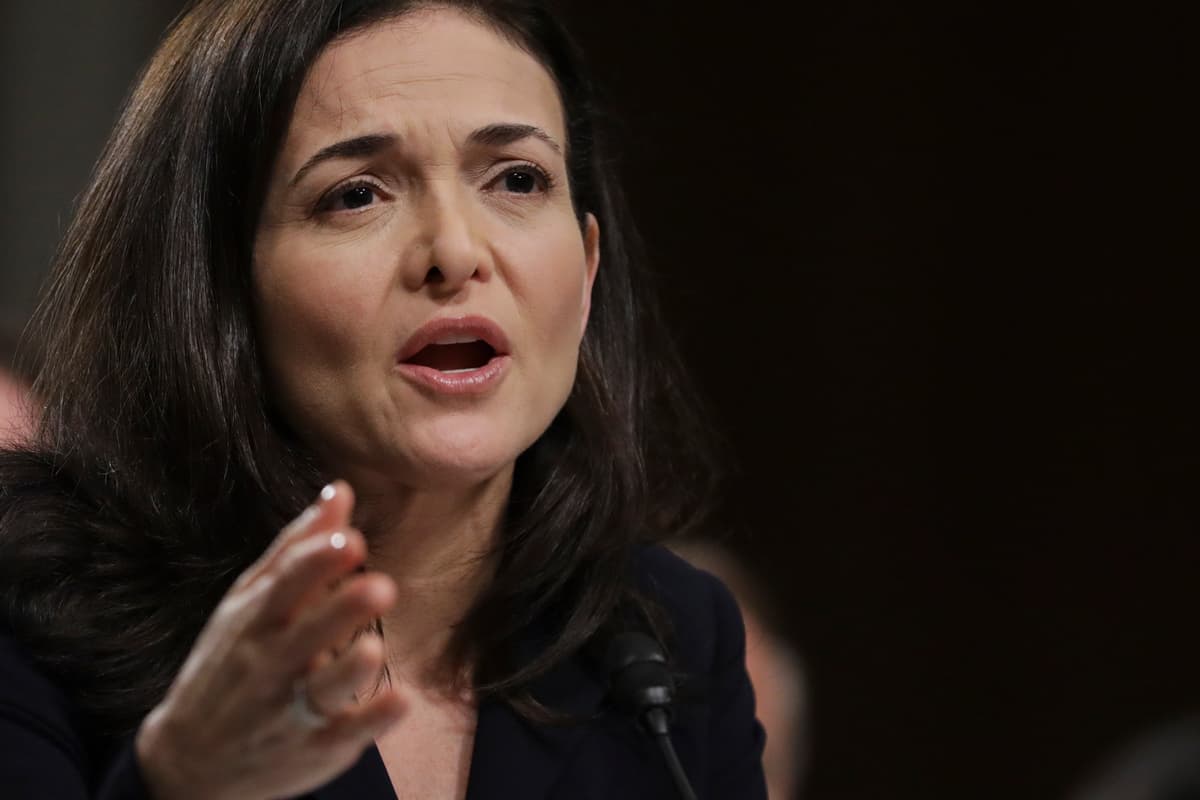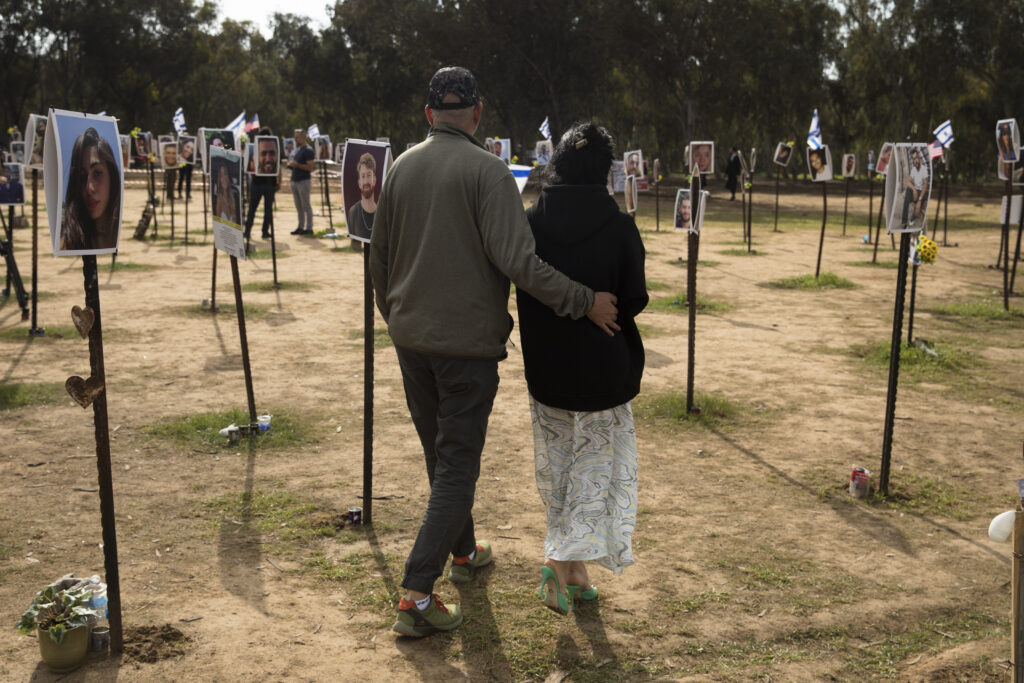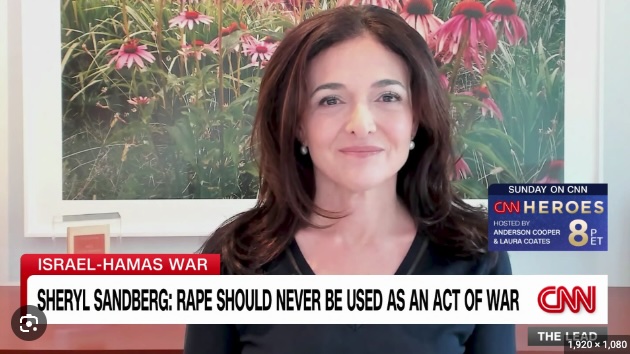With a New Documentary on Sexual Atrocities Committed by Hamas, Sheryl Sandberg Wants To ‘Make Sure We Hold the Perpetrators Accountable’
The chilling one-hour film is result of Sandberg’s journey to Israel to speak with Israeli survivors of the sexual violence that Hamas committed on October 7 — and may be committing right now.

The former chief operating officer of Meta (formerly Facebook), Sheryl Sandberg, is making a documentary about the sexual atrocities committed by Hamas on October 7. The full one-hour film, called “Screams Before Silence,” is due out in April — and judging from some early excerpts it will not make for easy viewing.
The documentary focuses on the women and girls who were subject to sexual violence at the Supernova Music Festival, which came under Hamas attack on October 7 on a day when Hamas murdered 1,200 Israelis — triggering the current war against the terrorist group in the Gaza Strip.
One of the survivors interviewed by Ms. Sandburg — who is also the founder of LeanIn.org — is 18-year-old Agam Goldstein-Almog, who was taken hostage in Gaza and released after spending 51 days in captivity. She recounts not only her own harrowing ordeal at the hands of Hamas goons but also some of the horrors experienced by others. Part of her testimony about another abductee held by Hamas starts with the words, “He entered her in the shower and pointed a gun at her head.”
Why would Ms. Sandberg, whose net worth Forbes estimates at $2 billion, undertake this kind of emotionally grueling work? Her motivation comes from her insistence that sexual violence is unacceptable and to eliminate the web of deniability that has emerged in some quarters since that terrible day.

“When this happened on October 7,” Ms. Sandberg told CNN’s Jake Tapper on Monday, “and the evidence started coming out about the sexual violence, rape, genital mutilation … the silence was really deafening, and I think it’s really important that we never tolerate this form of sexual violence, ever. It happened clearly in Israel on October 7, it’s happening in other places in the world right now, but people are denying it, particularly because of the polarization around the October 7 attack.”
“This documentary,” she continued, “gives people to a chance to bear witness, to hear directly from people who were there, saw things, heard things: first responders who saw the bodies and the story this tells about how these women, and some men, spent the very last moments of their lives.”
She added that “it’s a story that we cannot not look at directly, see what’s happening, and make sure we hold the perpetrators accountable.“

Ms. Sandburg fought back tears as she described to Mr. Tapper the experience of interviewing the hostage survivor Agam, who at her kibbutz on October 7 watched as her father and then her older sister were killed in front of her. Then, Ms. Sandburg recounted, “she and her mother and two younger brothers were driven to Gaza, where they remained for over 50 days as hostages. There’s no 18-year-old in the world who should have her life destroyed that way, as a hostage, subject to that kind of assault. It’s unacceptable.”
The renowned tech executive said that the stories Agam shared were similar to those she heard from other female hostages about things that were happening in captivity, “and therefore we should all be very afraid they are still happening today.”
Ms. Sandburg said that despite Hamas’s denials, “rape occurred systematically, and [that fits the] definition of a war crime and crime against humanity: things that are premeditated, that happen at multiple locations — and at almost every location where the terrorists were … I walked through the fields where bodies were found … and they were [found] naked, they were bloody … there is no other explanation … this was systematic.”
“Agam and her mother are speaking out because they want those hostages back and they want Hamas held accountable for terror and violence and sexual violence,” Ms. Sandberg said.

She also said that she was impressed by Agam’s inner strength. Again fighting back tears, Ms. Sandberg said that when she was in Israel conducting her interviews, someone told her that “Israelis are as broken as a people can be, and as strong as a people can be.”
Israelis, she said, are facing not just what happened, “but a certain amount of denial about what happened, and the reason I went there to bear witness myself and make this documentary myself was so that people can hear directly from people who had these experiences. And I think that when you hear these firsthand experiences, you can’t deny what happened.”

